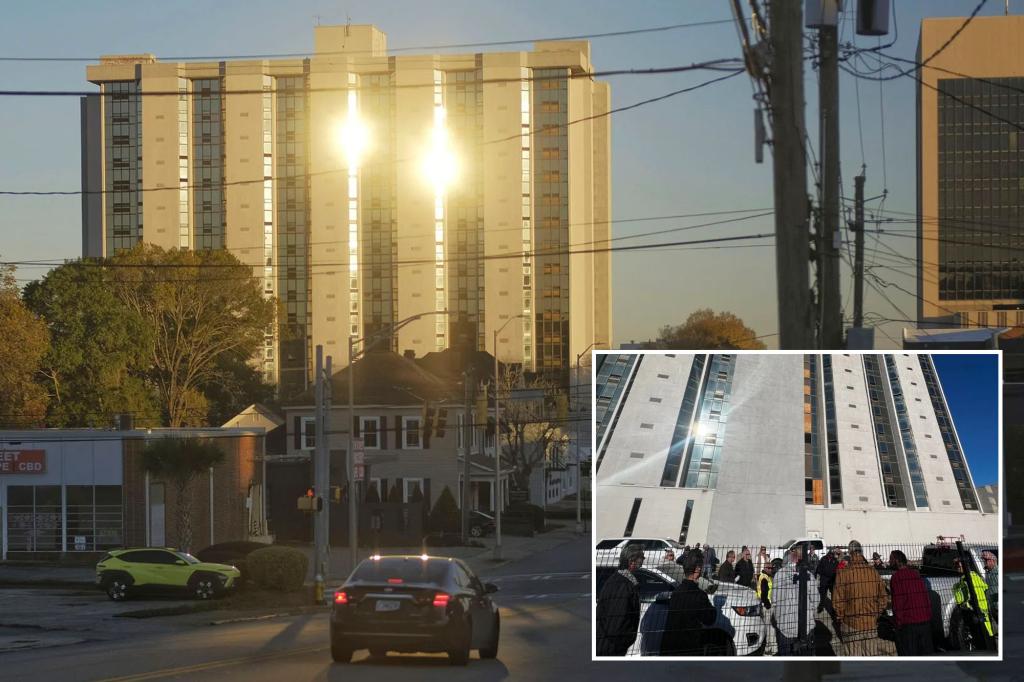In the heart of downtown Macon, Georgia, a significant event is planned to usher in the New Year of 2025— the controlled demolition of a long-abandoned 16-story hotel. Set for January 1 at 9 a.m. EST, this explosive resolution symbolizes a fresh start for the community. Macon Mayor Lester Miller enthusiastically announced the city’s acquisition of the building, emphasizing that the primary purpose of the purchase was to facilitate its demolition. The hotel, having lain dormant for years, will be taken down as part of a larger strategy to rejuvenate the area and mitigate the blight that has hindered downtown Macon’s development.
The historical backdrop of the building adds layers of intrigue to its impending destruction. First opened in 1970, the hotel had once hosted iconic figures, including Elvis Presley. However, its decline began in 1991 when it was seized by the New York Banking Department due to allegations of its involvement in a fraud case. The hotel’s last operation under the name Ramada Plaza ceased in 2017. Since then, numerous attempts to revive the property have failed, highlighting the challenges posed by the hotel’s aging structure and its inability to meet modern fire and safety regulations. City officials acknowledged that renovation prospects had become untenable, prompting the decision to invest $2.6 million in demolition instead.
Mayor Miller expressed a hopeful sentiment, stating, “The way you start your new year is how you spend your entire year,” indicating that the demolition is not merely a matter of tearing down a building but represents a shift towards a more prosperous future. The planned event seeks to unite the community, allowing residents to reflect, remember the building’s past significance, and celebrate the dawn of new development opportunities. By removing the ‘eyesore,’ the city aims to pave the way for economic revitalization and engage the public in a celebratory atmosphere surrounding the New Year.
Despite the positive outlook from city officials, concerns have been raised by nearby residents, particularly those associated with the historic Christ Episcopal Church adjacent to the hotel. The church’s vestry member, Russ Henry, voiced apprehension regarding the potential structural impact of the demolition on the church’s sanctuary, especially as they prepare to celebrate their bicentennial. The community hopes that adequate precautions will be taken to ensure the historic edifice remains intact during the explosive event, emphasizing a need for caution amidst the enthusiasm for progress.
While the demolition is poised to serve as a symbolic new beginning for downtown Macon, it also underscores broader issues surrounding urban development and historical preservation. The failed attempts to reinvigorate the hotel over the years illustrate the complex interplay of economics, safety regulations, and community values in the redevelopment efforts. As city planners and residents look toward future projects, the lessons learned from this property may influence how similar ventures unfold, echoing the need for a balance between modernization and respecting local heritage.
In conclusion, the upcoming demolition of the hotel in downtown Macon encapsulates a moment of transformation for the community, transitioning from neglect to revitalization. Mayor Lester Miller’s vision for communal celebration highlights the event’s significance beyond just the physical act of demolition, framing it as a chance for collective renewal and optimism. As the clock strikes nine on New Year’s Day 2025, the explosion will mark the end of an outdated structure and the potential beginnings of new opportunities for economic growth and community bonding—a poignant reminder of how the past shapes the future.

